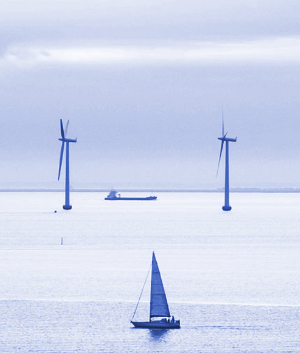Origin secures wind deal
 Origin Energy is partnering with Renewable Energy Systems (RESS) to develop two offshore wind projects in Gippsland.
Origin Energy is partnering with Renewable Energy Systems (RESS) to develop two offshore wind projects in Gippsland.
The deal is intended to help make Origin a significant player in the growing zero-emission energy market. Victoria, where the projects will take place, has made offshore wind a key pillar of its plan to transition away from fossil fuels.
Despite being a major renewable energy developer domestically, Origin has little experience in offshore wind, and some industry executives had speculated that it would struggle to win any of the few feasibility licences that are expected to be awarded this year.
However, the partnership with RESS is likely to boost the company's prospects, according to reports.
RESS has developed more than 23GW of zero-emission projects in its 40-year history and is a significant developer of wind generation, having constructed about 10 per cent of the wind generation assets in the United States.
The applications from Origin and RESS intensify a race to secure a feasibility licence, with more than a dozen developers, including global giants Shell, EDP Renewables, and ENGIE, vying for five licences.
All are keen to capitalise on Victoria's ambitious target of generating about 20 per cent of its energy needs from offshore wind within a decade.
Victoria's coastline is ideal for offshore wind, with strong and consistent winds by international standards and a large area of shallow ocean suitable for wind turbine platforms to be fixed to the seabed, which is a much more mature and lower cost technology than floating turbines that have to be used in deeper waters.
The influx of applications will create a headache for federal regulators, who will have to determine which are selected to proceed.
Under Australia's regulatory framework, if developers are deemed to have equal merit, the National Offshore Petroleum Titles Administrator (NOPTA) will inform bidders that they are tied and ask for an adjustment to their plans to avoid any crossover in the exclusive areas.
If no agreement can be reached, then the rules allow Australia to open up for developer bidding, a potentially lucrative outcome for Treasury.
NOPTA has warned that it may take six months to award feasibility licences, though Star of the South, Australia's most advanced offshore wind project and backed by Cbus and CIP, is expected to be fast-tracked after the federal energy minister awarded the project major project status.
Macquarie is also considered a front-runner after securing funding from the Victorian government.
Those that miss out on a feasibility licence in Victoria are expected to shift their attention to New South Wales, which is on course to be declared Australia's second offshore wind region.
However, industry insiders claim the competition is likely to be intense as the area designated to date is so small that only two projects are likely to be accommodated.







 Print
Print